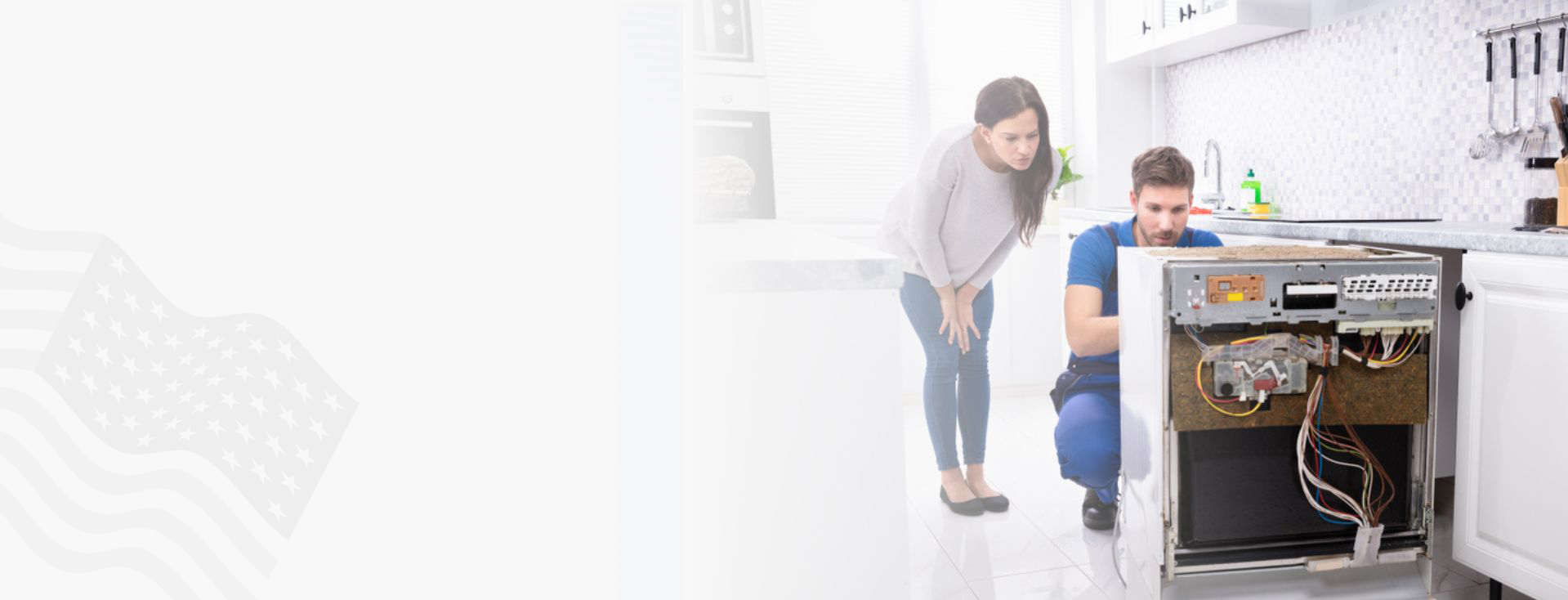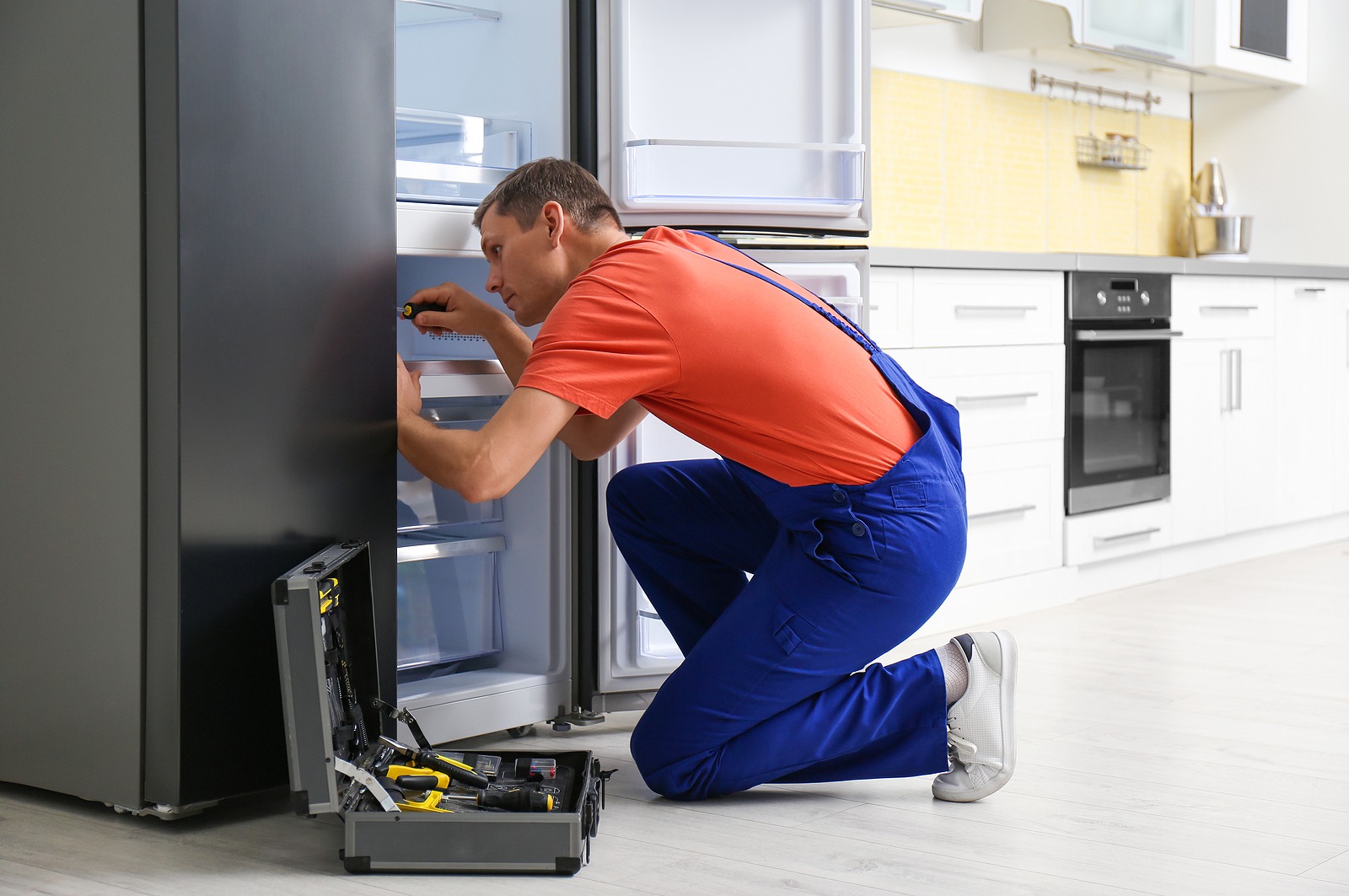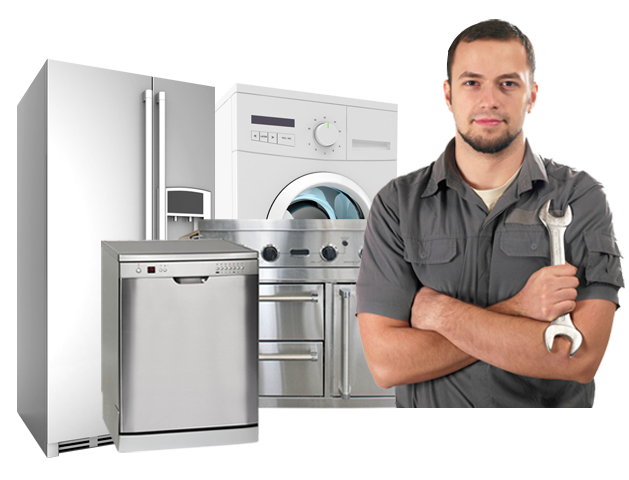Troubleshooting Loud Washers – Dependable Refrigeration & Appliance Repair Service Washer repair near me
Troubleshooting Loud Washers – Dependable Refrigeration & Appliance Repair Service Washer repair near me
Blog Article
The Ultimate Guide to Recognizing Device Repair Work in the house
When your refrigerator quits cooling down or your oven rejects to heat, it can feel overwhelming. Understanding home appliance repair service in the house can save you time and cash. You'll learn to acknowledge signs, use important devices, and adhere to an organized troubleshooting process. Yet prior to you begin, there are critical security preventative measures you require to consider. What are one of the most typical problems, and just how can you fix them? Allow's explore the basics.
Typical Device Troubles and Their Signs and symptoms
When your home appliances start acting up, it's important to recognize the signs beforehand. Ignoring them can cause larger issues and expensive repair work. If your refrigerator isn't cooling down correctly, you might observe warm areas or condensation developing. This could indicate a falling short compressor or an obstructed vent.Your dish washer may show problems via dirty dishes or unusual sounds throughout cycles. If you listen to grinding or clanking, it's time to investigate.A cleaning device that will not spin or drain pipes can leave you with soggy washing, recommending a clogged up drainpipe or a malfunctioning pump.Lastly, if your oven's temperature appears off or it takes forever to pre-heat, you may be handling a defective thermostat. By staying alert to these signs and symptoms, you can resolve issues prior to they rise into major fixings.
Crucial Tools for Appliance Repair
When you're tackling home appliance repair work at home, having the right tools is vital. Standard hand devices like screwdrivers and pliers will assist you take apart and take care of various devices, while electric testing gadgets ensure you're working securely with circuitry. Let's look at what you require to begin on your fixing trip.
Standard Hand Devices
Having the right devices is essential for effective home appliance fixing in the house. Beginning with a dependable screwdriver set, including both flathead and Phillips types, as screws are common in device assembly. Pliers are additionally crucial; they assist with gripping, twisting, and reducing cables or small components. A set of needle-nose pliers can get to limited places quickly. You'll need a great flexible wrench for tightening or loosening nuts and screws. An utility knife is convenient for puncturing packaging or insulation. Lastly, don't forget a strong workbench or surface to safely organize your tools and parts. With these standard hand devices, you'll be well-prepared to tackle most appliance fixings that come your way.
Electrical Screening Devices
Together with fundamental hand tools, electric testing gadgets play a crucial duty in device repair. These tools aid you identify electric problems and assurance appliances function securely. A multimeter is crucial; it measures voltage, existing, and resistance, allowing you to determine problems rapidly. A non-contact voltage tester is an additional must-have, allowing you discover real-time cables without making straight contact, improving your safety and security. Secure meters are excellent for gauging existing flow in cables without disconnecting them, conserving you time and initiative. Additionally, circuit testers can rapidly inspect if outlets are working appropriately. By utilizing these devices, you'll enhance your troubleshooting procedure and enhance your fixing skills, making device maintenance a whole lot less complicated.
Step-by-Step Guide to Diagnosing Home Appliance Issues
When your home appliance breaks down, it can be discouraging, yet identifying the problem does not have to be frustrating. You'll find out to recognize common troubles and use effective fixing strategies. Let's go through the steps to obtain your appliance back in working order.
Typical Appliance Problems

Troubleshooting Strategies Explained

Repairing Major Kitchen Devices: A Closer Look
Have you ever wondered how to take on typical issues with your kitchen area devices? Fixing significant kitchen area devices like fridges, stoves, and dishwashing machines can be less complicated than you assume. Beginning by identifying the problem-- whether it's a fridge not cooling or a stove that won't warm. Often, a basic reset or inspecting the source of power can resolve the issue.For fridges, clean the condenser coils and examine the door seals. If your stove's not home heating, evaluate the burner and thermostat. Dishwashers might just need a clean filter or a reset to get them back at work. Always unplug the device before diving into fixings to guarantee your safety.Don' t forget to get in touch with the user manual for particular troubleshooting tips associated with your design. With a little bit of patience and the right tools, you can with confidence tackle home appliance repair work and conserve money in the process!

Repairing Laundry Equipments: Tips and Techniques
When your laundry devices begin acting up, it can really feel overwhelming, however troubleshooting them doesn't need to be a hassle. Begin by examining the power supply. Verify the appliance is plugged in and the electrical outlet is functioning. Next off, inspect the door or lid switch; a faulty button can protect against the device from operating.For washers, if it's not spinning, look for unbalanced loads. Redistributing the garments could address the problem. If your clothes dryer isn't heating, clean the dust filter and inspect the air vent for blockages.Listen for uncommon noises; they can indicate a problem. If your home appliance is dripping, inspect the pipes for fractures or loose links. Document any type of mistake codes shown on digital screens, as they can lead you in determining the problem. Ultimately, seek advice from the individual guidebook for certain repairing pointers associated to your model.
Safety Preventative Measures to Take During Fixes
Before you begin any kind of appliance fixings, it's crucial to focus on safety and security to stop accidents or injuries. Unplug the device or transform off the circuit breaker to assure no power reaches it while you work. Use protected devices to minimize the risk of electrical shock. Wear safety and security goggles and gloves to safeguard on your own from sharp edges or debris (Washer dryer repair service Dependable Refrigeration).Make certain your work area is tidy and well-lit, so you can see what you're doing. Maintain youngsters and family pets far from the area to stay clear of interruptions and prospective risks. If you're managing gas home appliances, be additional cautious; look for leakages prior to proceeding.Take your time, and don't hurry through repairs. If you really feel uncertain about any type of step, it's far better to stop briefly and study than to guess. Following these precautions will certainly help create a safer setting for your DIY home appliance repair task
When to Call an Expert for Assistance
How do you know if it's time to hire a specialist for device repairs? If you have actually tried basic troubleshooting without success, it's a clear sign. For example, if your home appliance still will not start or reveals unusual noises after resetting it, do not wait to look for specialist help.When you notice leakages, smoke, or melting smells, focus on safety and security and call a check my site professional instantly. These concerns can bring about even more substantial damages or pose risks to your home.Also, if your appliance is under warranty, getting in touch with a professional is commonly the finest route. They can ensure that repair services will not invalidate your service warranty, saving you money in the lengthy run.Finally, if you're unsure or uneasy with intricate repair work, it's important to leave it to the specialists. Keep in mind, taking on complicated problems without the right experience can lead to costly mistakes. Count on a specialist when in doubt!
Frequently Asked Questions
How Can I Avoid Device Issues in the Future?
To stop device issues in the future, you should carry out regular upkeep, check for damage, clean filters, and stay clear of overloading. Staying aggressive will certainly help prolong their life-span and keep them running smoothly.
What Are the Many Common Do It Yourself Appliance Fixing Mistakes?
You could overlook safety and security precautions, miss fixing actions, or utilize wrong devices when trying do it yourself appliance fixings. Rushing the process or ignoring maker guidelines can bring about even more significant concerns and expensive errors. Remain individual and notified!
How Do I Know if a Component Requirements Substitute?
You can tell if a part needs replacement by looking for uncommon sounds, leakages, or irregular efficiency. If the home appliance battles to run properly or shows noticeable damages, it's likely time for a substitute.
Can I Make Use Of Generic Parts for Device Repair Works?
Yes, you can make use of common components for home appliance fixings, however identify they're suitable - Fixes washers and dryers Oro valley Dependable Appliance Repair. Common parts may save you money, however they could affect performance or durability, so weigh your options very carefully prior to choosing
What Guarantees Cover Device Repairs?
The majority of appliance service warranties cover repair services for producing problems, yet they frequently leave out damage from misuse. Check your warranty terms carefully, as some could call for making use of licensed specialists and initial parts for protection to continue to be valid.
Report this page